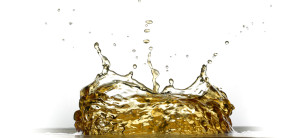We are often asked if we offer any teas that aid in digestion, so here are a couple of suggestions from our menu. Since Neil and I inquisitive thinkers, we always do the research ourselves before we make any claims about our teas, especially when it comes to tea and health. Read below for a bit of science to explain why these teas are so good for your tummy!
African Ginger (caffeine free)

Ginger
Although we have heard people tell us that ginger is good for digestion, we still went out of our way to find numerous articles reviewing studies showing how ginger benefits the digestive system. According to Dr. Tilgner in Herbal Medicine, ginger can increase the activity of digestive enzymes, increase the circulatory system, and prevent stomach ulcers. Ginger increases the secretion of bile to break down oily foods in your diet and helps to relieve flatulence, burping, and colic. Dr. Campusvej and associate researches published findings in the Journal of Ethnopharmacology showing that ginger can aid in nausea and vomiting. Other clinical studies have found the same results in humans and other animals.
Puerh
Pu-erh tea is an aged tea that has been used in Chinese Traditional Medicine for over a century. Pu-erh tea has multiple health benefits including aiding digestion and weight-loss. According to multiple studies published in the North England Journal of Medicine, American Journal of Medicine, and British Journal of Clinical Pharmacology, pu-erh tea leaves can lower total cholesterol and body weight. When people drink pu-erh tea, the tea slows the production of an enzyme necessary for making fat cells in the body called fatty acid synthase. This is because the tea develops natural chemicals that are not present in other teas called ephedra alkaloids and lovastatin. Lovastatin is actually concentrated and used by pharmaceutical companies to make prescription medicine to lower cholesterol.
When pu-erh is aged, it remains moist so that the microbes and break down the leaves. Every couple of years, tea masters may re-moisten the leaves and age them again, which keeps the microbes alive. Researchers believe that there are specialized microbes inside the aging pu-erh tea leaves that produce lovastatin. Interesting results published in Food Chemistry, Oncology Research, Molecular Nutrition & Food Research show evidence that drinking pu-erh tea can lower low-density lipoprotein (bad cholesterol) and increase the high-density lipoprotein (good cholesterol).
